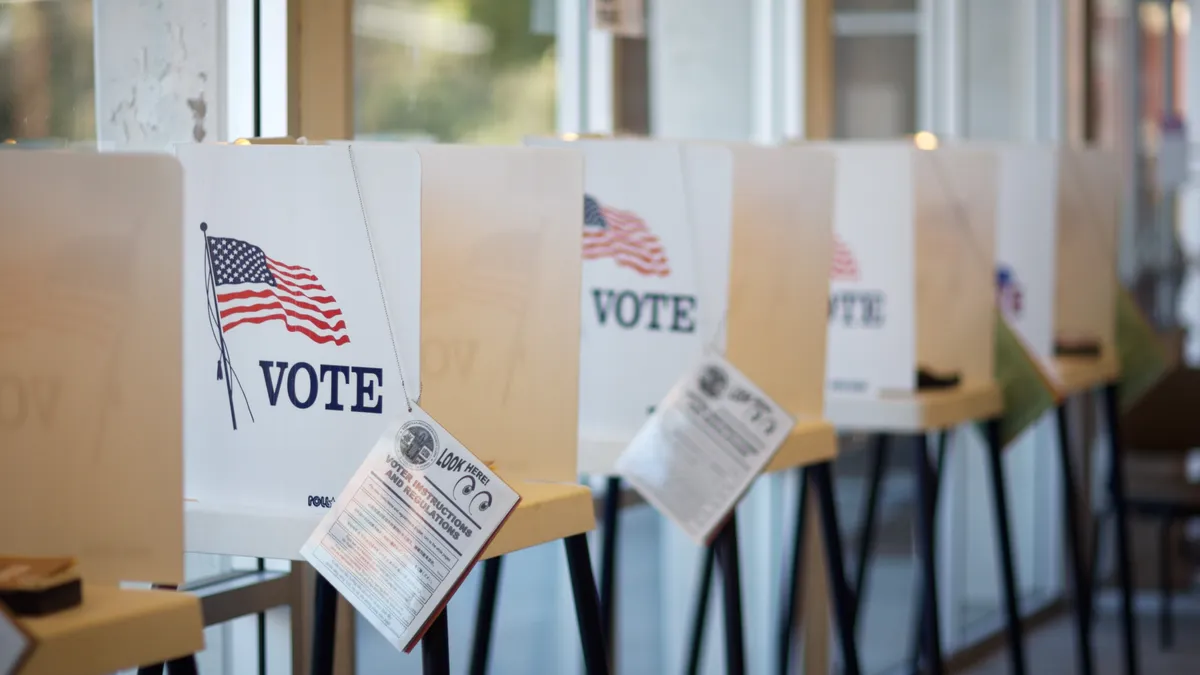Dive Brief:
- Voting in the 2018 midterm elections could be a lot easier for workers compared to past elections thanks to ElectionDay.org, a non-partisan project of Vote.org that has joined a coalition of more than 140 employers, including Lyft, Dropbox, Patagonia and Asana. Participants signed on to give their workers time off to go to the polls on Tuesday, Nov. 6.
- Launched in March 2018, ElectionDay.org aims to help employers interested in seeing workers exercise their civic responsibilities, according to a statement emailed to HR Dive. The initiative provides executives with tools and support toward implementing the holiday.
- About 60% of age-eligible U.S. voters didn't go to the polls in the 2014 midterm elections, according to Vote.org (a figure more or less in line with other turnout estimates), making for one of the lowest voting turnouts in the industrialized world. The top reason people cited for not voting, according to Vote.org, was work or school scheduling conflicts that kept them from getting to the polls.
Dive Insight:
Giving workers time off to vote is one of many ways that employers can support scheduling flexibility, an increasingly coveted job benefit and a growing feature of work in the modern world. Voting holidays also speak to a trend in employer attitudes toward employee political activities. Recently, author Alex Hertel-Fernandez discussed the growth of political participation among workers, which is in many cases a result of employers encouraging their employee populations to rally for both candidates and policies.
The employee engagement play here is obvious: employers both encourage workers' civic participation and also make a value statement by giving them time off to fulfill that participation. This can be part of a larger corporate citizenship push that demonstrates the employer is willing to be involved in community matters. That said, involvement in politics can get out of hand if not done with an eye toward civility. Policies that limit actions like handing out buttons or shirts in support of a candidate will need to be made explicit and communicated clearly.
With the average workweek now expanded to 47 hours on average, according to a 2014 Gallup poll, employees may struggle finding sufficient time for personal responsibilities. Therefore, any effort to help relieve this source of stress can go a long way towards improving workers' overall well-being. In fact, a recent study by the University of Michigan and California State University Channel Islands found that employees with flexible work schedules had greater job satisfaction and were less likely to quit their jobs than those on traditional 9-to-5 schedules.












